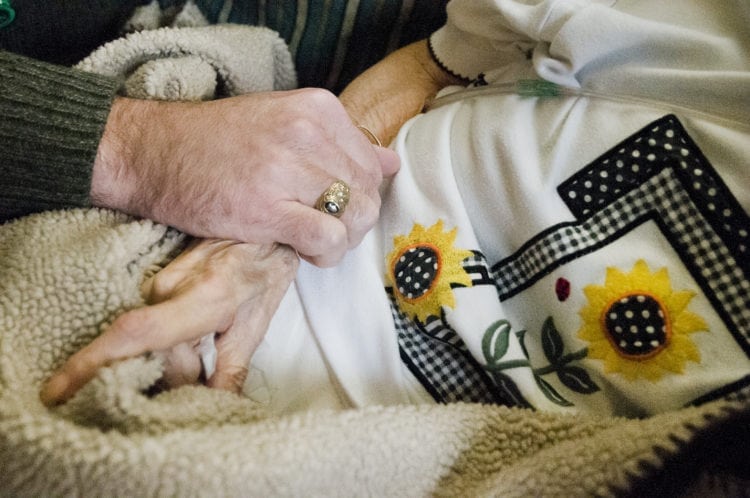
Pharmacy alumna and UW Medicine post doc receives 2017 AcademyHealth New Investigator Award to study benefits of end-of-life care planning in palliative care
UWSOP alumna Cara McDermott, Pharm.D., Ph.D., M.Sc. was named to the 2017 cohort of New Investigators by AcademyHealth. The AcademyHealth New Investigator Small Grant Program is designed to support the early careers of new health services researchers.

“Cara is a three-time alumna of our School. She is an extraordinary person doing critical work into a very challenging area to study—palliative care,” lauded Professor and Dean Sean D. Sullivan. “We are so proud of her and her significant potential as a scholar. She embodies all of the characteristics we come to expect of our preeminent students and alumni at the UW School of Pharmacy.”
Cara’s grant will support her research project, “Care Coordination and Low-Value Care at End-of-Life Among Patients with Advanced Cancer.” Following the Affordable Care Act, there is increased focus on improving value in health care and provision of advanced care planning for patients. Value-based cancer care delivery is at the nexus of these priorities, and organizations such as the American Society of Clinical Oncology have noted that additional research is needed to guide value considerations in cancer care delivery.
Low-value care, which is care lacking sufficient evidence of benefit or not in accordance with patient goals, often occurs near death for cancer patients. Hospitalization and emergency department visits at end of life are often for commonly occurring conditions such as dehydration or pain. If these conditions are effectively addressed in the home setting then patients and caregivers could avoid the time, hassle, and expenditures of hospital care. Targeted care coordination, whereby patients are informed of various care options for end-of-life care provision and can plan their care, may allow patients to avoid such low-value care.
Using existing partnerships between the Hutchinson Institute for Cancer Outcomes Research at Fred Hutchinson Cancer Research Center and local insurers, Cara will study insurer-provided care coordination for enrollees in Washington State with advanced cancer and the association with patterns of healthcare utilization in the last month of life. Findings from this study will help determine how patients perceive and utilize care coordination services in this setting and inform future interventions to improve care coordination and value-based care delivery for patients facing life-limiting illness.
The 2017 New Investigators were selected through a competitive process that includes evaluation by four individual review committees comprised of AcademyHealth staff, staff at partner organizations, and health services research and policy experts. “I know that this year’s cohort will use this professional development opportunity to contribute critical research on some of the most pressing issues in health care,” said AcademyHealth President and CEO Lisa Simpson.
Currently Cara McDermott is a T32 post-doctoral research fellow with the Cambia Palliative Care Center of Excellence at the University of Washington School of Medicine and an Affiliate Investigator with the Hutchinson Institute for Cancer Outcomes Research at Fred Hutchinson Cancer Research Center.
###
About University of Washington School of Pharmacy
The UW School of Pharmacy is comprised of three departments: Medicinal Chemistry, Pharmaceutics, and Pharmacy, offering Ph.D., M.S., and PharmD degrees, post docs and certificate programs. The Department of Pharmacy leads in pharmacy education, research, professional and outreach initiatives, including the Pharmaceutical Outcomes Research & Policy Program (PORPP), which conducts research in pharmaceutical economics, drug safe and pharmaceutical policy. The UW School of Pharmacy is a global leader in pharmacy education, research and service, committed to providing a transformative learning experience in a collaborative and diverse environment focused on improving the health and well-being of the communities we serve.
About AcademyHealth
AcademyHealth is a leading national organization serving the fields of health services and policy research and the professionals who produce and use this important work. Together with our members, we offer programs and services that support the development and use of rigorous, relevant and timely evidence to increase the quality, accessibility, and value of health care, to reduce disparities, and to improve health. A trusted broker of information, AcademyHealth brings stakeholders together to address the current and future needs of an evolving health system, inform health policy, and translate evidence into action. Learn more at www.academyhealth.org and follow us on Twitter @AcademyHealth.